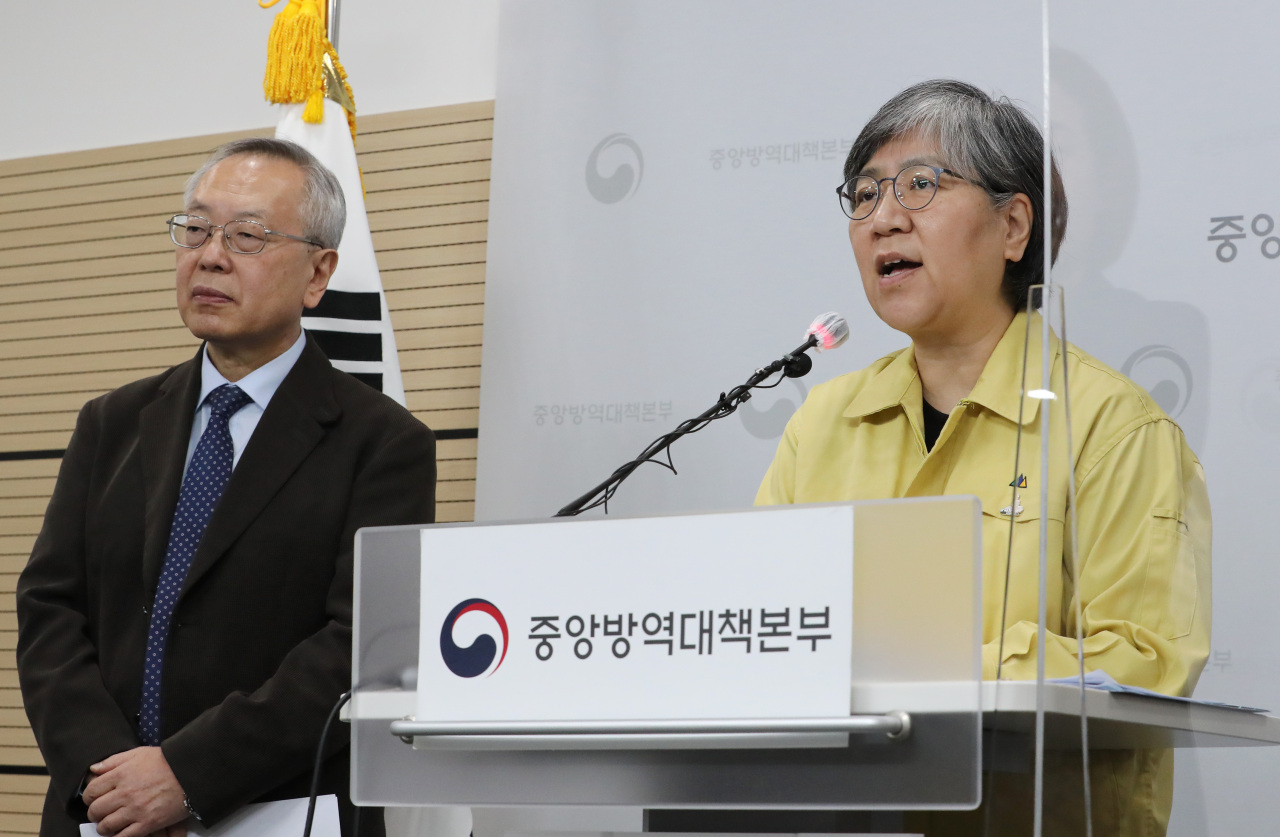S. Korea finds no evidence of flu vaccine’s role in reported deaths
By Kim ArinPublished : Oct. 25, 2020 - 15:22

South Korea has decided to stick to its flu vaccination program, as no evidence emerged to link the reported deaths to poorly managed or faulty vaccines, the Korea Disease Control and Prevention Agency’s committee on immunization practices said Saturday.
The agency’s director Jung Eun-kyeong said in a briefing that the committee’s review of the reported deaths concluded the likelihood of there being a connection to the vaccines is “assessed to be very low.”
“At this stage, we don’t believe reexamining the vaccines or suspending the vaccinations is in order,” she said. The agency made the announcement based on its analysis of 26 out of the 48 deaths reported so far.
With the exception of a 17-year-old boy in Incheon and a 53-year-old woman in Seoul, all of the known deaths were of people in their 60s or older, the agency said. Forensic examinations listed cardiovascular, cerebrovascular and other diseases as the causes of death for 13 of the cases.
Provisional counts for reported adverse events climbed to 1,154 as of Saturday afternoon. This is out of some 14.27 million people who have been administered the flu vaccine to date. Investigations are underway to determine if any link to the flu vaccines exists.
The agency withdrew more than 1 million doses of the flu vaccine earlier this month over improper handling or contamination. The agency conducted a joint inspection with the Ministry of Food and Drug Safety at the time and decided the breaches did not affect the vaccines in terms of safety or efficacy.
Suspected instances of flu vaccine-related deaths have happened before.
A total of 25 deaths among flu vaccine recipients were reported between 2009 and 2019. Only one of them -- a previously healthy woman in her 60s -- was recognized as being eligible for compensation. She died in February 2010, roughly four months after she received a flu jab. She came down with a neurological condition known as Miller Fisher syndrome a few days after the vaccination, and was later diagnosed with aspiration pneumonia.
According to the influenza immunization guidelines, babies and children aged between 6 months and 5 years of age, pregnant women and older adults are at higher risk of flu-related complications. It is estimated that the flu causes nearly 3,000 deaths here annually.
Health experts recommend being well-rested before and after vaccination. Sleep also enhances the formation of an immune response to the vaccine.
Very rarely, flu vaccines may cause a potentially life-threatening allergic reaction called anaphylaxis. The onset of such symptoms begins soon after the vaccination. For people with a history of egg allergy, vaccine administration must proceed under strict supervision.
Common vaccine side effects include swelling, redness and pain around the injection site and mild fever, which typically go away within a few days.
By Kim Arin (arin@heraldcorp.com)








![[Kim Seong-kon] Democracy and the future of South Korea](http://res.heraldm.com/phpwas/restmb_idxmake.php?idx=644&simg=/content/image/2024/04/16/20240416050802_0.jpg&u=)








![[KH Explains] Hyundai's full hybrid edge to pay off amid slow transition to pure EVs](http://res.heraldm.com/phpwas/restmb_idxmake.php?idx=652&simg=/content/image/2024/04/18/20240418050645_0.jpg&u=20240418181020)

![[Today’s K-pop] Zico drops snippet of collaboration with Jennie](http://res.heraldm.com/phpwas/restmb_idxmake.php?idx=642&simg=/content/image/2024/04/18/20240418050702_0.jpg&u=)